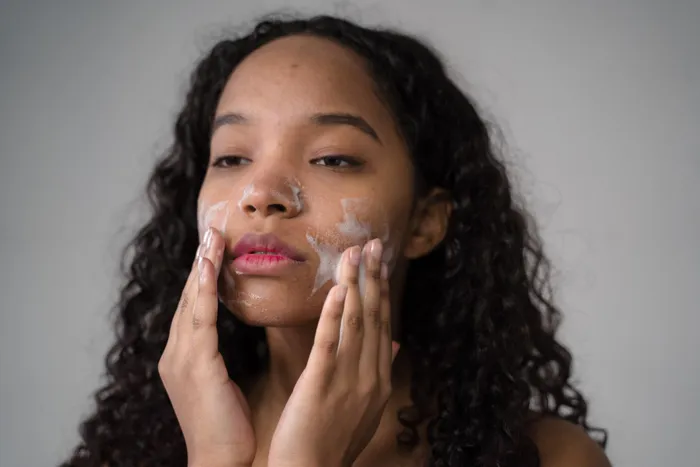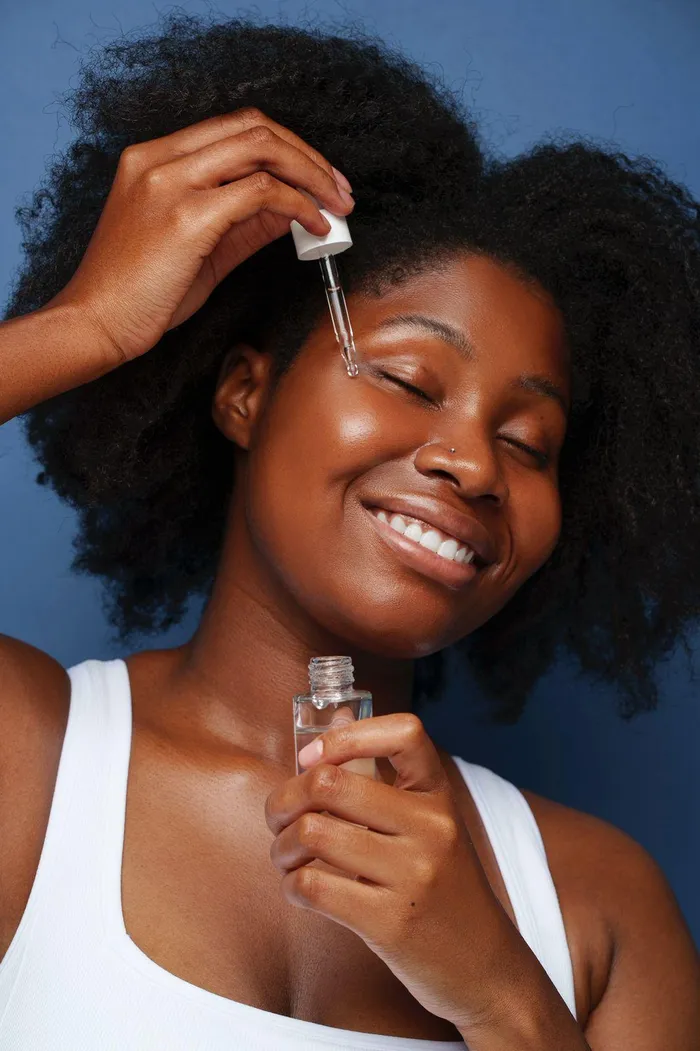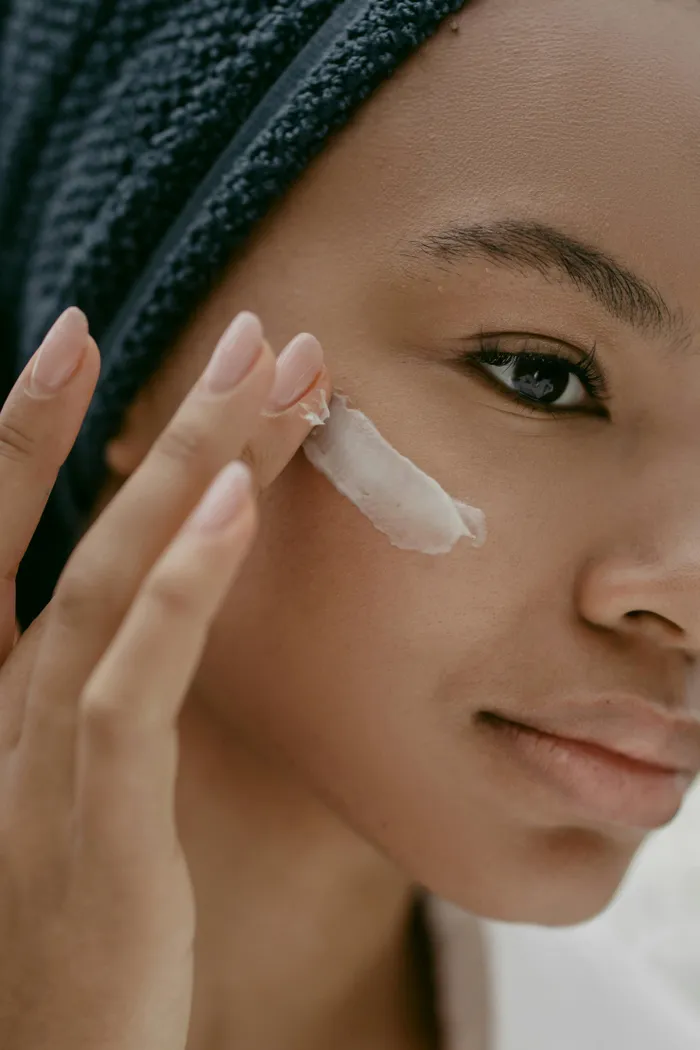Skincare 101: The non-negotiable basics for healthy, happy skin

Understanding the basics is essential for healthy skin.
Image: Freepik
It's Skincare Awareness Month, and if you've ever felt overwhelmed by the sheer volume of beauty information out there, you're not alone.
From 12-step routines to endless trendy ingredients, trying to figure out what your skin actually needs can feel like a full-time job.
Fortunately, a few core principles are non-negotiable for maintaining a healthy complexion.
We turned to renowned Biomedical Scientist, Dr Judey Pretorius, for a clear, simple breakdown of the absolute basics everyone should master.
Why the basics matter
First, let’s remember that your skin is your body’s largest organ.
It works tirelessly as a vital shield, protecting you from environmental threats like UV rays and bacteria, all while helping you retain water and regulate your temperature.
Considering this heavy-duty role, it makes sense to treat it well. But treating it well doesn't mean buying every fancy product on the market.
According to Dr Pretorius, the secret is simply mastering the fundamentals.
Cleansing is king
Even if your skin feels dry, daily cleansing is a must.
Why? Think about everything your face is exposed to: pollution, dirt, pollen, makeup, and the natural oil (sebum) your skin produces.
Cleansing is the essential first step that removes all these impurities.
Dr Pretorius recommends reaching for a gentle, pH-balanced cleanser that is free of potential irritants like artificial colours and fragrances.
Keeping it gentle ensures you clean the skin without stripping your vital protective barrier.

Cleansing your face is the first step towards maintaining healthy skin.
Image: Ron Lach / Pexels
SPF: Your everyday essential
If there's one topic that still sparks debate, it’s sun protection, but here's the absolute truth: everyone needs to wear SPF every single day.
That means winter, autumn, and even when you’re staying indoors.
The sun's damaging UVA rays can penetrate clouds and windows, ageing and damaging your skin over time.
Plus, research is now showing that blue light and visible light from screens and indoor lighting also play a part in skin damage.
Choose a broad-spectrum formula and, if you're spending significant time outdoors, be sure to reapply throughout the day.

Sunscreen is an essential step in your beauty routine.
Image: Freepik
The power of serum
Think of serums as the concentrated powerhouses of your routine.
They're formulated to deliver a high dose of active ingredients directly into your skin to target specific concerns.
What makes them so effective?
- High potency: Serums often contain greater concentrations of ingredients like Vitamin C (for brightening and antioxidants), Hyaluronic Acid (for deep hydration), Niacinamide (for calming and pore-minimising), or Retinol (for anti-ageing and acne treatment).
- Fast-absorbing: Serums have a lighter, often water-based consistency compared to creams. This allows them to penetrate deeper layers of the skin, where they can work more effectively to address issues like hyperpigmentation, fine lines, or dullness.

Retinol is known for treating acne, smoothing fine lines and wrinkles, and improving overall skin texture.
Image: Freepik
Always moisturise
No matter your skin type, oily, dry, or somewhere in between, you need to moisturise.
Moisturisation is key to ensuring your skin barrier function is protected and working optimally.
If your skin is very dry, look for ingredients like shea butter, ceramides, and niacinamide.
If your skin is normal to oily, you still need to moisturise to prevent your skin from overcompensating and producing too much sebum.
Ingredients like Hyaluronic Acid are fantastic for this, as they restore the skin's water content without adding oil.

Never skip moisturiser.
Image: Cottonbro studios / Pexels
Simple habits for a healthier you
Beyond what you apply to your skin, Dr Pretorius emphasises a few key lifestyle habits that make a massive difference
Wash your textiles
When you sweat, the bacteria get trapped in your clothing, and that’s why body acne is common, especially for active people.
Wash your clothes after each wear and, if you exercise, shower ASAP afterwards.
The same rule applies to your bed. While you sleep, your skin secretes oil and sweat onto your pillowcase.
Washing your pillowcase regularly prevents this build-up from clogging your pores and causing breakouts.
Keep your hands off your face
This can be a hard habit to break, but try to avoid habitually touching your face during the day.
Our hands carry a surprising amount of bacteria, and every time you touch your skin, you transfer that bacteria, which makes you more prone to breakouts and clogged pores.
Exfoliate gently weekly
Your skin sheds thousands of cells daily. If these dead cells build up, they can leave your complexion looking dull or ashen, and they can clog your pores, leading to breakouts.
Regular exfoliation removes these cells, allowing your skincare products to penetrate better and work their magic.
Dr Pretorius cautions against over-exfoliating, which can compromise your skin barrier. Once or twice a week is plenty.
She also suggests opting for an enzymatic or chemical exfoliator (which uses gentle acids or enzymes) over harsh physical scrubs, as microbeads or kernels can cause tiny, inflammatory tears in your skin.

Exfoliating helps your skin glow.
Image: Angela Roma / Pexels
Mastering these basics (cleansing, SPF, serum, moisturising, and smart habits) is the foundation of great skin.
Once you’ve locked these in, you can start exploring active ingredients to target your specific concerns, whether that's ageing, dark marks, or acne.
Related Topics: